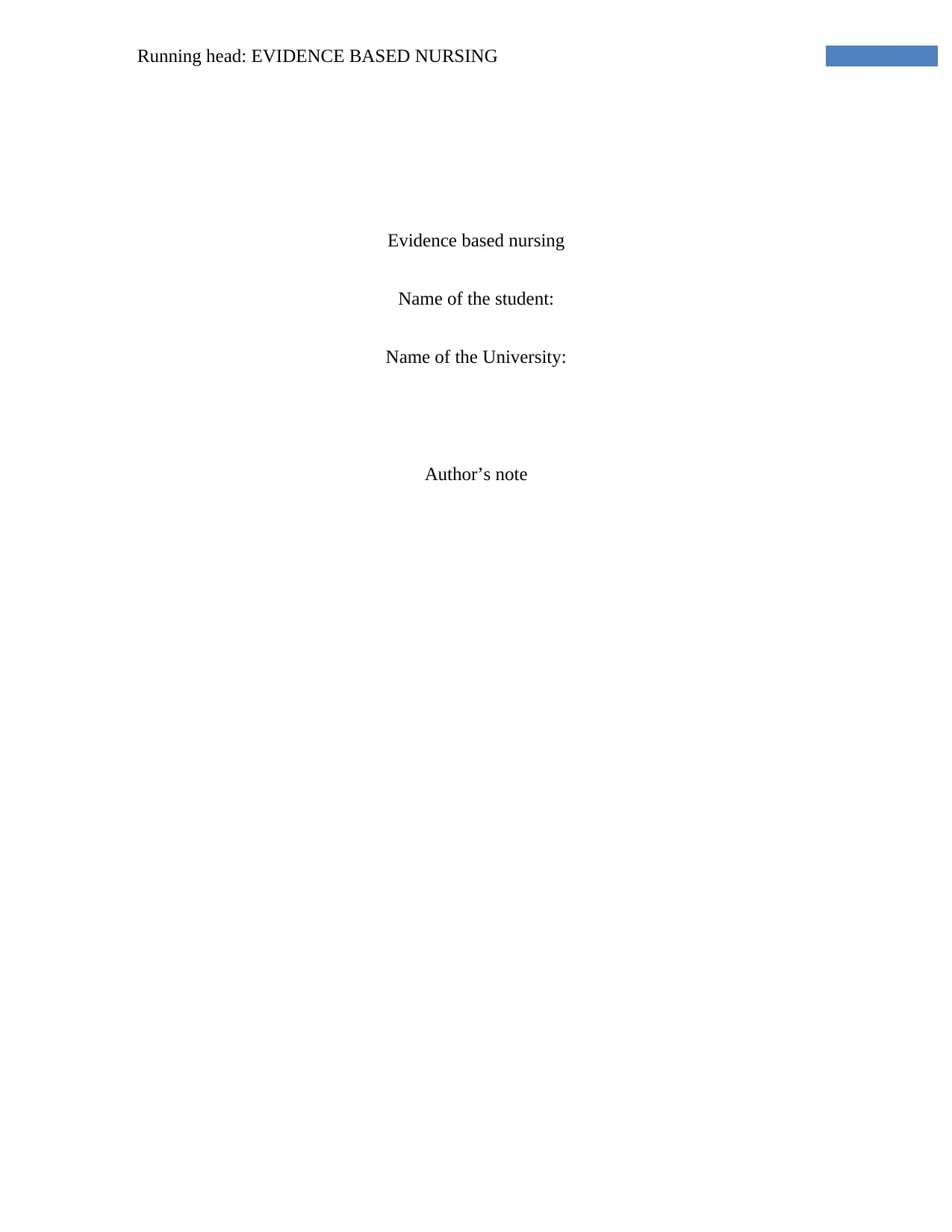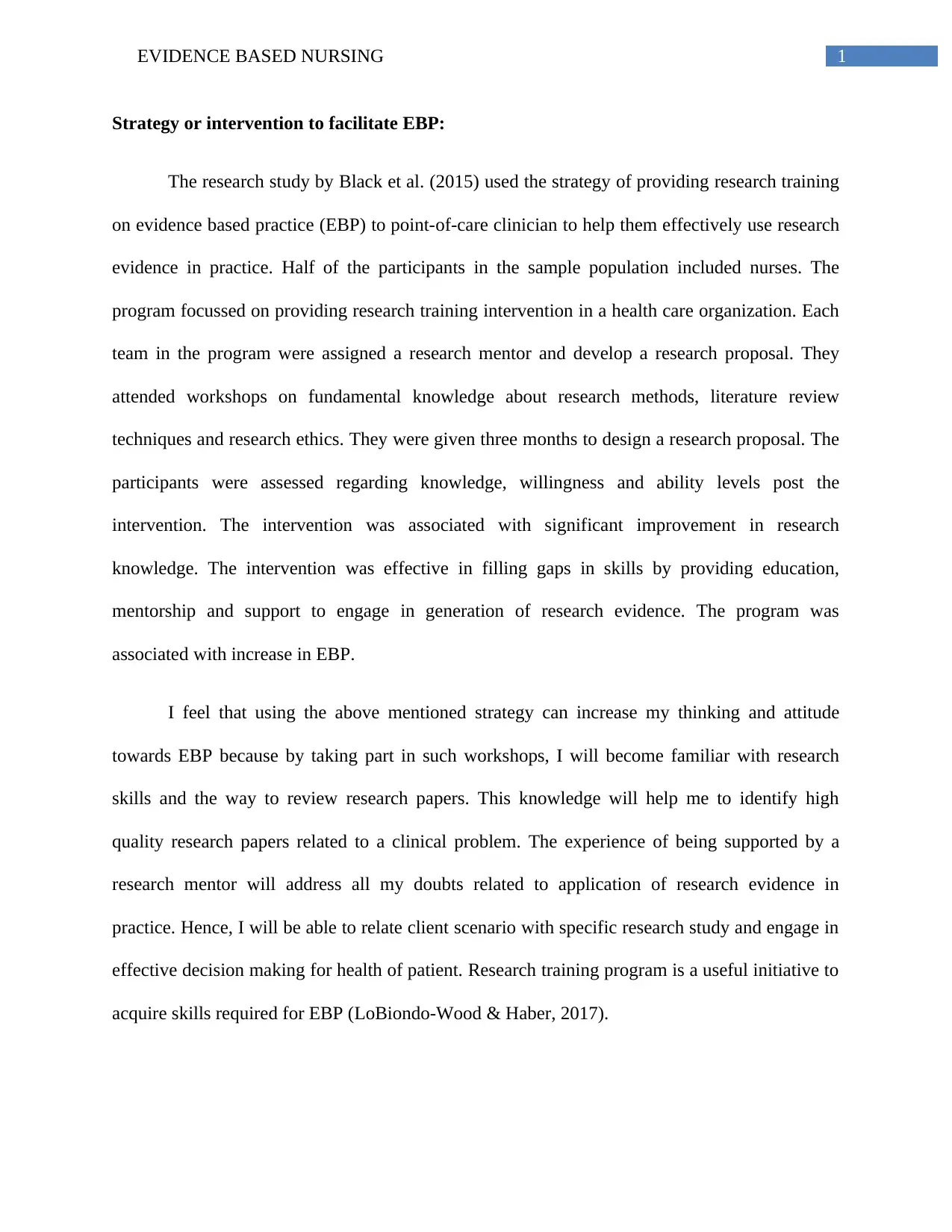Evidence Based Nursing: Research, Practice, and Implementation
VerifiedAdded on 2023/01/13
|3
|411
|30
Report
AI Summary
This report discusses evidence-based nursing (EBN) and its practical application. It analyzes a research training program designed for healthcare professionals, focusing on the impact of research training on the implementation of EBP. The report details the methodology of the training, including mentorship and workshops on research methods and ethics. The intervention involved providing research training to clinicians. The participants were provided with research skills. The report finds that the intervention improved skills and knowledge related to research. It concludes with a reflection on the benefits of EBP and the acquisition of research skills, emphasizing the importance of such training in bridging the gap between research and clinical practice. The author expresses the intention to apply this knowledge to clinical decision-making and patient care.
1 out of 3










![[object Object]](/_next/static/media/star-bottom.7253800d.svg)